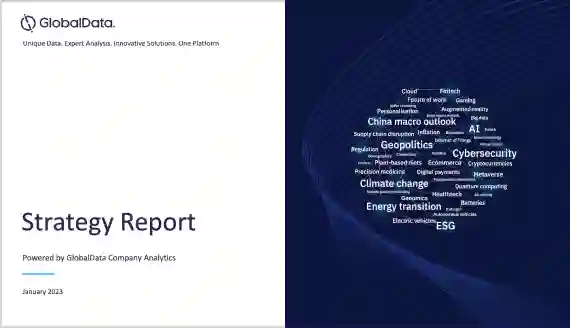Autonomous Vehicles in Foodservice – Thematic Research
Powered by ![]()
All the vital news, analysis, and commentary curated by our industry experts.
Currently, the autonomous vehicle market is very small, especially for commercial enterprises such as foodservice, which are currently mostly piloting the technology. However, as the AV market progresses due to innovation (evolving from being partially self-driving vehicles to being completely driverless in all scenarios and environments) driven by changes in government regulation, this market is expected to have exponential growth. According to Global Data’s Forecasts, autonomous vehicles are expected to have a volume CAGR of more than 50%.
The emergence of COVID-19 has brought renewed pressure. Considering that the speed of economic recovery is hard to predict, and post-COVID-19 consumer attitudes to shared products and services are unclear, it has become even harder to build strategies to combat existing threats. The emergence of AVs has an intertwined relationship to end-consumer demand in foodservice. As vehicles become more connected and autonomous, companies have evidently been focusing more to provide end-consumer solutions through their supply chain and foodservice delivery.
Autonomous and connected cars align closely to consumer demand in digitalization and alternative lifestyles. This has led to leading quick-service restaurants (QSRs) such as Domino’s to form partnerships with AV providers like Nuro and Neolix to pilot the potential of the technology, whether it is to target consumers on the go or at-home delivery. These solutions in vehicles provide a more tailored and digitally advanced experience for consumers.
What are the main trends shaping the AV theme in the foodservice sector?
Technology trends
More than 40 companies worldwide are developing the brains for self-driving vehicles. The world leaders are Google’s Waymo, GM’s Cruise, Nvidia, Baidu, Intel, Aptiv, Infineon, Qualcomm and NXP, along with a clutch of start-ups funded by legacy car makers and tech giants. The cluster of technologies being developed to turn vehicles into intelligent, self-driving robots include systems on chips, GPS, analytic sensors, wireless communications, and deep learning. All of the 10 largest car maker groups and 10 largest technology companies by revenue are working to launch level 4 autonomous vehicle programs, with timescales between 2020 and 2025.
Light detection and ranging (LiDAR), is a sensing technology for computer vision based on lasers and used in autonomous vehicles. LiDAR has an advantage over other sensor types because it is exceptionally accurate, gathers data very quickly, and is unfazed by poor weather and low-light conditions. However, LiDAR is at a disadvantage compared to other systems because it can be very expensive and bulky.
Macroeconomic trends
Users will be more aware than ever of the health risks associated with shared spaces so mobility service companies will have to take extra steps to ensure the cleanliness of their fleet. Some interior technology companies are currently investigating the potential to utilize ultraviolet light to sterilize cabin environments in between users. Autonomous vehicles cost more than self-driven vehicles and, as such, are more likely to be purchased by ride-hailing and car-sharing companies than private buyers. Considering the shared roles many autonomous vehicles will be filling, they will likely be among the first to make use of these sterilization technologies as a way to reassure potential users.
Regulatory trends
In the wake of an Uber test AV’s fatal collision with Elaine Herzberg in Arizona and Walter Huang’s fatal crash in his Tesla Model X, both in March 2018, there has been more focus from regulators about establishing rules for self-driving vehicles. International agreement on policies for autonomous vehicles may take a long time to be reached. Without agreement, the sector may face scale challenges. In the US, the NHTSA allows states to implement and determine regulation at the local level. Any forthcoming lack of standardization could introduce technical redundancy to autonomous cars and increase associated costs.
Foodservice trends
The direct-to-consumer trend has been highlighted during the Covid-19 pandemic. Subscriptions and contact-free delivery on small and large grocery and meal purchases make it easier for isolated customers to buy exactly what they want during the global pandemic. Shopping online allows consumers to plan what they are going to buy, and it enables them to research specific products easily and quickly. Small businesses have found a significant boost in business through the online channel. Ecommerce has been the savior of many small, local businesses that faced a bleak outlook when lockdowns forced their doors to close.
What are the key classifications in the AV industry?
On the road to 2035, it is forecast that countries will gradually explore level 4 and level 5 AVs as more regulations to support fully automated vehicles come into play and concerns towards the technology eases. In foodservice, it is forecast that Level 4 and 5 AV fleets will increase, as major fast-food chains such as Domino’s are already piloting Level 4 AVs for delivery purposes in the US and other chains are testing similar fleets to target on-the-go consumers in China. If government regulations do not change to support level 4 and 5 AVs, the number of units will remain small and the technology will not develop in that particular region.
For example, by 2035 Japan is expected to manufacture a small volume of Level 4 AVs and no Level 5 AVs, compared to China, which is expected to manufacture over 2 thousand units of Level 4 AVs and a thousand Level 5 AVs. A primary driver of this is the government regulations and support that will progress these models to come to market. Foodservice providers will therefore need to be selective medium to long term of which regions would work best to implement an AV fleet and differentiate their service offering compared to sector competitors.
Of the levels covered in these charts, level 4 is expected to reach the greatest level of penetration in the next 15 years. This is because the technology is seen as more valuable than level 3 AVs, so receives more development resources, but is more achievable than level 5 fully driverless vehicles. Level 4 AVs benefit from being restricted to geofenced areas, while they can operate fully autonomously within those set parameters, they are unlikely to run into a situation they are unable to deal with – the biggest difficulty with programming level 5 – fully driverless vehicles. Like all levels of autonomy, China is expected to see the highest levels of penetration because it has the largest economy, vehicle parc, and most favorable legislative environment.
Level 4 AV market share by volume (2035 forecast)
For more regional insights, download a free report sample
Who are the key players in the AV value chain?
Key players in the autonomous vehicles market incluce Alphabet (Google’s parent company), Apple, Aptiv, Baidu, BMW, Broadcom, Daimler, Geely, GM, Argo AI, Aurora, Cambricon, Embark, Neolix, and Velodyne.
Brain vendors include:
Leaders: Google’s Waymo, Tesla’s Autopilot.
Service robots: GM’s Cruise, Uber, Baidu, Aptiv, Nvidia DRIVE, and Intel/Mobileye.
Sensor vendors include:
Leader: Sony, Samsung, NXP, Infineon, STMicroelectronics, Velodyne, Lumentum, and Finisar. Challengers: Texas Instruments, Cypress, and Xilinx.
Software component vendors include:
Robotic intelligence: ABB, Cognex, Microsoft, Rockwell Automation, Google, Amazon.
Auto-grade silicon vendor includes:
Leaders: Nvidia and Intel, with AMD
Challengers: NXP, STMicroelectronics, and Infineon.
Foodservice vendor includes:
Domino’s, Yum! Brands China, Chipotle.
Market report scope
| Growth rate | >50% |
| Base year for estimation | 2020 |
| Key Classifications | Level 4 AV and Level 5 AV |
| Publicly Listed Private Companies | Alphabet (Google’s parent company), Apple, Aptiv, Baidu, BMW, Broadcom, Daimler, Geely, GM, Argo AI, Aurora, Cambricon, Embark, Neolix and Velodyne |
Scope
- The global automotive industry faces four concurrent disruptive threats: the connected car, the electric vehicle, autonomous driving technology, and transport-as-a-service.
- Each threat is potentially existential to legacy carmakers who operate in a low-growth, low-margin sector that is seeing its supply lines reset by cumulative advances in enabling technologies typically deployed by Tier-1 suppliers.
Reasons to Buy
- Gain insight into the latest AV trends around foodservice and leading companies in the theme.
- Identify emerging technologies to help better position your company.
- Discover how rapidly enforced changes over the past year will influence consumer reactions.
Yum! Brands
Chipotle
Table of Contents
Frequently asked questions
-
What is the growth rate of AV industry?
The autonomous vehicles are expected to have a volume CAGR of more than 50%.
-
What are the key classifications in the AV industry?
Key classifications in the AV industry include level 4 AV and level 5 AV.
-
Who are the key players in the AV value chain?
Key players in the autonomous vehicles market include Alphabet (Google’s parent company), Apple, Aptiv, Baidu, BMW, Broadcom, Daimler, Geely, GM, Argo AI, Aurora, Cambricon, Embark, Neolix and Velodyne.
Get in touch to find out about multi-purchase discounts
reportstore@globaldata.com
Tel +44 20 7947 2745
Every customer’s requirement is unique. With over 220,000 construction projects tracked, we can create a tailored dataset for you based on the types of projects you are looking for. Please get in touch with your specific requirements and we can send you a quote.












